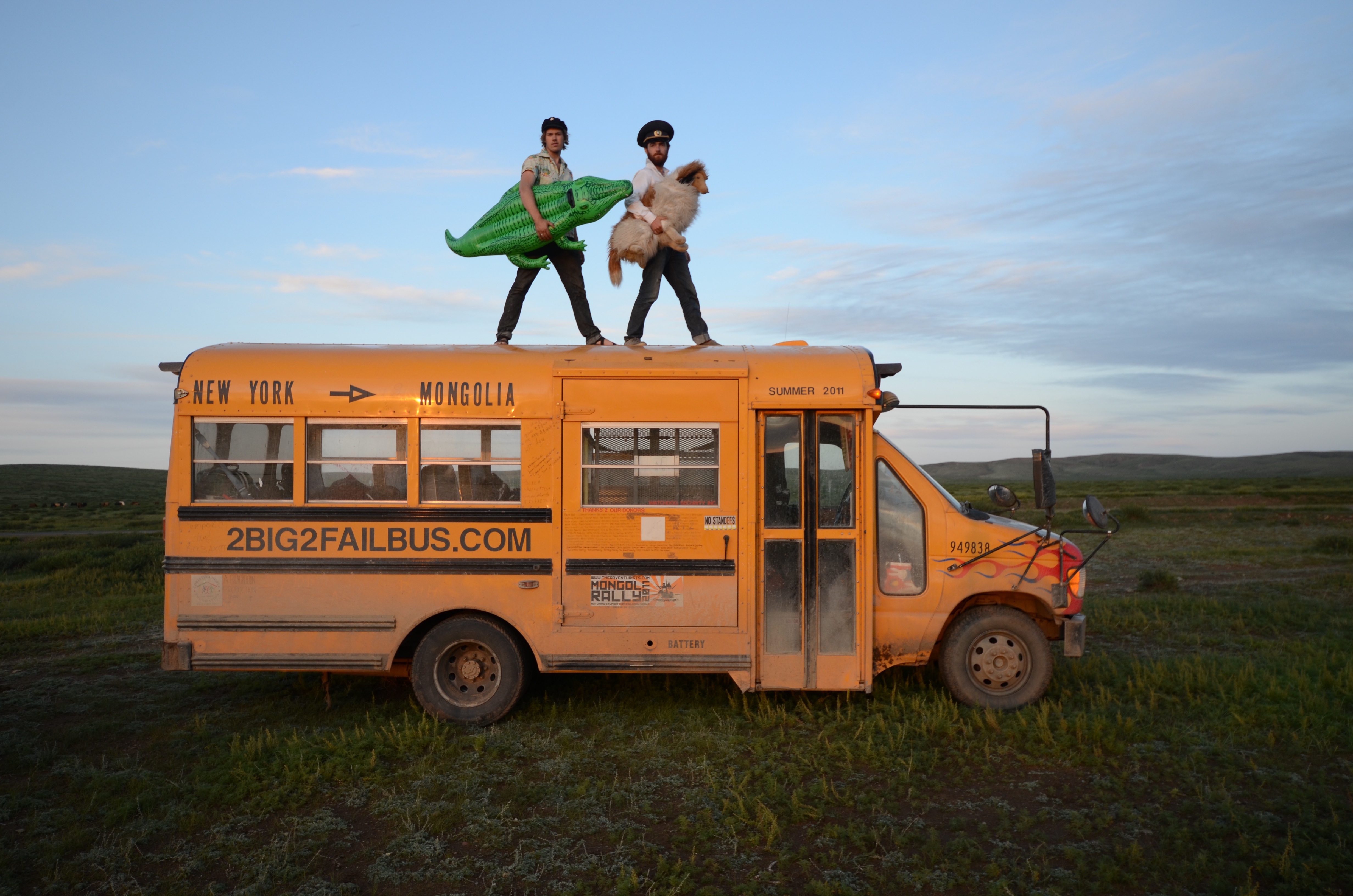
16,000 kilometers, 1 bus and a license to bribe
On the Mongol Rally, budgeting for corruption is a must to complete treacherous journey across 25 countries.
Did this mean that by the time I got back to Europe, everyone would be swindling each other and I'd have to bribe immigration to get back into the country?
AT A GLANCE: Mongol Rally destinations
Turkmenistan
Population: 5.3 million
Capital: Ashgabat
Main exports: Oil, gas, textiles, raw cotton
Uzbekistan
Population: 27.8 million
Capital: Tashkent
Main exports: Cotton, gold, natural gas, mineral fertilizers, ferrous metals, textiles, motor vehicles
Kyrgystan
Population: 5.5 million
Capital: Bishkek
Main exports: Fruit, vegetables, gold, tobacco
Russia
Population: 140.3 million
Capital: Moscow
Main exports: Oil and oil products, natural gas, wood and wood products, metals, chemicals, weapons and military equipment
At a glance: Mongol Rally Destinations
Azerbaijan
Population: 8.8 million
Capital: Baku
Main exports: Oil, oil products
Mongolia
Population: 2.7 million
Capital: Ulan Bator
Main exports: Copper concentrate, dehaired cashmere, textiles, hides
Kazakhstan
Population: 15.7 million
Capital: Astana
Main exports: Oil, uranium, ferrous and nonferrous metals, machinery, chemicals, grain, wool, met, coal
Georgia
Population: 4.2 million
Capital: Tbilisi
Main exports: Scrap metal, wine, fruit
At one point, a soldier made a motion to the rest of my team and said, “your boyfriend, your girlfriend, your brother, your sister? Uzbekistan. You? Turkmenbashi.” With this, about seven men erupted in laughter.
At a glance: Mongol Rally Destinations
Kosovo
Population: 1.8 million
Capital: Prishtina
Main exports: Coal, lead, zinc, chromium, silver
Serbia
Population: 8 million
Capital: Belgrade
Main exports: Manufactured goods, food and live animals, machinery and transport equipment
Montenegro
Population: 625,000
Capital: Podgorica
Main exports: Aluminium
Bosnia and Herzegovina
Population: 3.8 million
Capital: Sarajevo
Main exports: Wood and paper, metal products
At a glance: Mongol Rally Destinations
Greece
Population: 11.2 million
Capital: Athens
Main exports: Textiles and clothing, food, oil products
Macedonia
Population: 2 milion
Capital: Skopje
Main exports: Clothing, iron and steel
Croatia
Population: 4.4 milion
Capital: Zagreb
Main exports: Machinery and transport equipment, clothing, chemicals
Slovakia
Population: 5.4 milion
Capital: Bratislava
Main exports: Manufactured good, machinery and transport equipment
Corruption by the numbers (Source: Transparency International's Corruption Perception Index 2010)
Turkemenistan
CPI: 172/178
Uzbekistan
CPI: 172/178
Kyrgystan
CPI: 164/178
Russia
CPI: 154/178
Azerbaijan
CPI: 134/178
Mongolia
CPI: 116/178
Kosovo
CPI: 110/178
Kazakhstan
CPI: 105/178
Bosnia and Herzegovina
CPI: 91/178
Serbia
CPI: 78/178
Greece
CPI: 78/178
Montenegro
CPI: 69/178
Georgia
CPI: 68/178
Croatia
CPI: 62/178
Macedonia
CPI: 62/178
Slovakia:
CPI: 59/178
Turkey:
CPI: 56/178
Czech republic
CPI: 53/178
Hungary
CPI: 50/178
France
CPI: 25/178
Belgium
CPI: 2/178
United Kingdom
CPI: 20/178
Germany
CPI: 11/178
Luxemburg
CPI: 22/178

Kosovo 2.0
Kosovo 2.0 is a pioneering independent media organization that engages society in insightful discussion. Through our print and online magazines, debates and advocacy initiatives, we are dedicated to deepening the understanding of current affairs in Kosovo, the region and beyond.
This story was originally written in English.